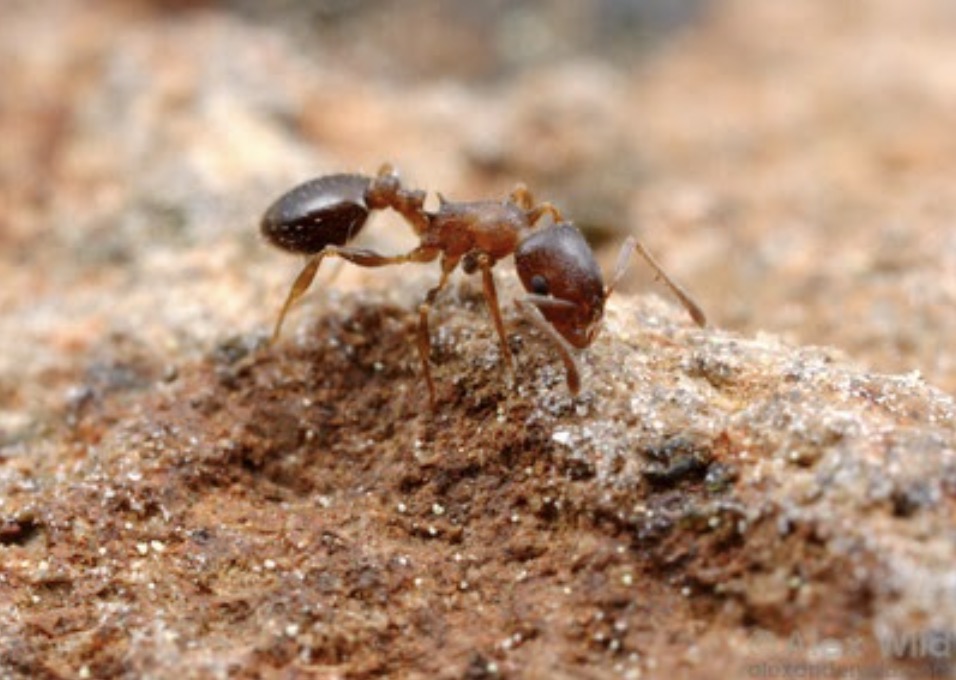Some interesting information about the little known
Temnothorax Longispinosus
Left to their own devices, these tiny creatures trundle happily around the forest floors of North America. Unfortunately their neighbours have other ideas. Every so often nests are raided by larger ants who massacre the adults and bear away their babies to raise them as slaves.
The heavily armoured Protomognathus americanus ant has become so dependent on captives that it can no longer find its own food or clean out its own colonies.
Being too small to fight their overlords, some of the slaves have found another way to exact revenge: they dismember their masters’ children and scatter the bodies outside the nest. Biologists have been at a loss to explain what the rebels get out of this reckless defiance. Why does the pismire strike back?
A zoologist at an unremembered University believes he has found the answer. It is not some death-or-glory impulse that sparks the slave revolts, but hard-headed evolutionary sense.
The smaller ants will never overthrow their masters, but the more children they slaughter, the fewer overlords there will be in the future. This helps to protect any free Temnothorax colonies nearby.
‘As enslaved workers do not reproduce, they gain no direct fitness benefit from this ‘rebellion’ behaviour. However, there may be an indirect benefit: neighbouring Themnothorax nests that are related to ‘rebel’ nests can benefit from a reduced raiding pressure.‘
In other words, the slave ants are driven by their genes to rise up not for their own benefit but for the sake of cousins they will never see, and whose very existence they might be only dimly aware of.
Nature is
D o P e





